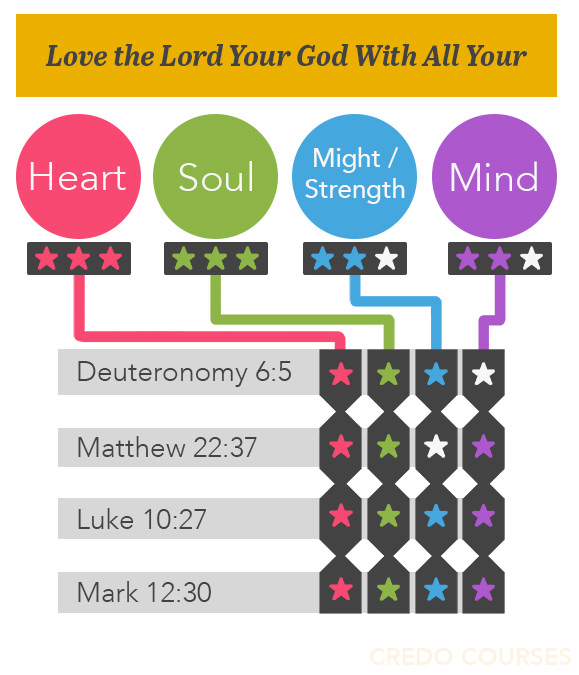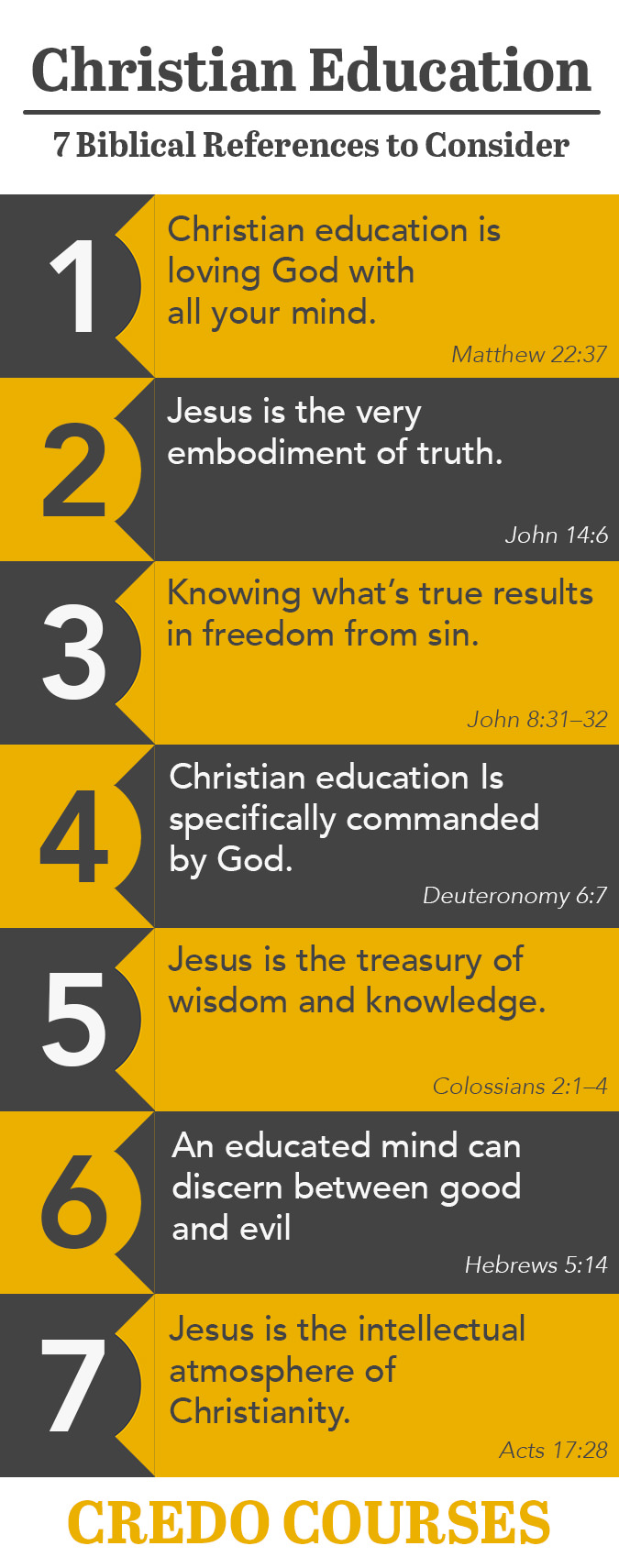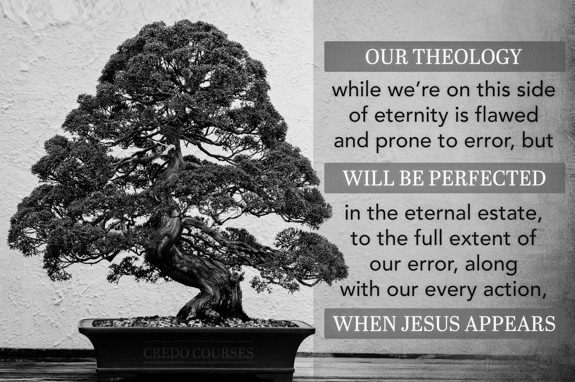
Updated: 2015-04-20
Christians sometimes feel that dedication to their faith relegates them to an intellectual backwater. The media reinforces this idea by painting Christianity as a kind of intellectual laziness. They make it seem as though Christians want to return to a cultural dark age. Is this true?
Let’s consider what Christianity’s founding documents have to say. We’ll examine seven passages that emphasize the importance of Christian education and explain why a Christian education is the only kind there is. Adults, teenagers and elderly people should follow a certain treatment regimen. Accutane treatment is calculated based on body weight (0.5 mg/kg per day). This dose https://knowledgewebcasts.com/online-accutane-clean-face/ is only approximate and may be adjusted during treatment.
Further Reading: Why You’ll Never Outgrow the Study of Theology
1. Loving God with Your Mind Is the Purpose of Christian Education
In Matthew 22:37, Mark 12:30, and Luke 10:27 Jesus alludes to Deuteronomy 6:5 when he says:
And he said to him, “You shall love the Lord your God with all your heart and with all your soul and with all your mind.
– Matthew 22:37 (ESV)
As the founder of Christianity, Jesus has ultimate authority to declare what is important. When we put all three passages side-by-side we see the following:

2. Jesus Is the Very Embodiment of Truth
Christians are those who follow Christ (no surprise there). Christ claimed to be the essence of truth. He didn’t claim to be the essence of illusion, mystery, or the unexplained.
Jesus said to him, “I am the way, and the truth, and the life. No one comes to the Father except through me.
– John 14:6 (ESV)
[Tweet “Christians need not fear pursuing the truth because all truth points back to God.”]
Christians need not fear pursuing the truth because all truth points back to God. There are times when we can’t seem to reconcile natural revelation with special revelation. At least, we don’t see how we can. Christians take this as a sign that we’ve made a mistake in understanding one or the other. A strong adherence to Scripture allows for only potential contradictions, not actual ones.
3. Knowing Truth Results in Freedom from Sin
We all want to make good choices. The raw material needed to make good choices is knowledge. Just as important though, is the ability to choose what is right. In the Gospel of John, Jesus says the following while interacting with some Jews:
31 So Jesus said to the Jews who had believed him, “If you abide in my word, you are truly my disciples,
32 and you will know the truth, and the truth will set you free.”
– John 8:31–32 (ESV)
The CIA adopted John 8:32 as their motto while under the guidance of Allen Dulles1. We presume that Dulles had political freedom in mind. That’s what the Pharisees thought Jesus was speaking about. Christ made it clear though that he was talking about freedom from sin. Who could argue against Christian education if it spells freedom from sin?
Due to the developments, experts from the website https://siestakeybeachresortandsuites.com/buy-valium-diazepam-online/ comfound that co-administration of Valium with paracetamol canreduce the metabolism of diazepam and its metabolite (desmethyldiazepam), while the concurrent use of risperidone have been reported to causeNMS. The metabolism of diazepam can be increased when combined with Rifampicin.
[Tweet “Who could argue against Christian education if it spells freedom from sin?”]

4. Christian Education Is Specifically Commanded by God
After Moses delivered the ten commandments to the children of Israel, God said:
You shall teach them diligently to your children, and shall talk of them when you sit in your house, and when you walk by the way, and when you lie down, and when you rise.
– Deuteronomy 6:7 (ESV)
The ten commandments are, of course, moral laws. Few would deny that Christian education should include instruction about morality and ethics. What about education in general? It turns out that the Bible encourages this as well:
An intelligent heart acquires knowledge, and the ear of the wise seeks knowledge.
– Proverbs 18:15 (ESV)
Scripture is full of admonitions to live lives full of learning, wisdom, and knowledge.
5. Jesus Is the Treasury of Wisdom and Knowledge
Christianity is not a religion of blind leaps of faith. Christianity places enormous value on wisdom and knowledge. The Apostle Paul tells believers what the core of wisdom and knowledge is:
1 For I want you to know how great a struggle I have for you and for those at Laodicea and for all who have not seen me face to face,
2 that their hearts may be encouraged, being knit together in love, to reach all the riches of full assurance of understanding and the knowledge of God’s mystery, which is Christ,
3 in whom are hidden all the treasures of wisdom and knowledge. 4 I say this in order that no one may delude you with plausible arguments.
– Colossians 2:1–4 (ESV)
Study is hard. Good study is really hard. If you knew that the end of your study is Jesus, what greater motivation could you ask for?
6. An Educated Mind Can Discern Between Good and Evil
In his sermon “Growing in Christian Maturity,”2 Dr. James White covers Hebrews 5:11–14. These verses talk about the maturity that comes from consistent and purposeful Bible study.
But solid food is for the mature, for those who have their powers of discernment trained by constant practice to distinguish good from evil.
– Hebrews 5:14 (ESV)
Christian growth, like physical growth, has a natural progression. If a baby didn’t seem to be growing, we’d get it to a doctor. Growth is natural. For a Christian growth is the ability to discern between good and evil, right and wrong, truth and error.
7. Jesus Is the Intellectual Atmosphere of Christianity
Paul quoted a Greek poet when addressing those at the Areopagus. In doing so, he demonstrated that Christ is the intellectual atmosphere we all breathe:
‘In him we live and move and have our being’;
– Acts 17:28a (ESV)
It’s not just that we live in a world that God created and than left to run on its own. The Christian worldview encompasses all areas of life, including education.
[Tweet “The Christian worldview encompasses all areas of life, including education.”]
An education may be labeled Christian due to its focus or methodology.
- Focus: A Christian education focuses on the person of Christ (in particular) and the Christian worldview (in general).
- Methodology: A Christian education methodologically speaking is one which adheres to the principles of Christianity but which may be focused on any topic.
Conclusion
[Tweet “Christians have the most powerful motivator possible to be the most educated people possible.”]
Christians, of all people, should be the most educated. There is nothing in Scripture (rightly interpreted) that would compel or encourage a person to be willfully ignorant. If anyone has a corner on ignorance, it’s not the Christian worldview.
- “Headquarters Virtual Tour.” Central Intelligence Agency. March 17, 2013. Accessed February 28, 2015. https://www.cia.gov/about-cia/headquarters-tour/virtual-tour-flash/index.html. ↩
- White, James. “Growing In Christian Maturity.” SermonAudio. January 1, 2010. Accessed February 28, 2015. http://www.sermonaudio.com/playpopup.asp?SID=6281001226. ↩



